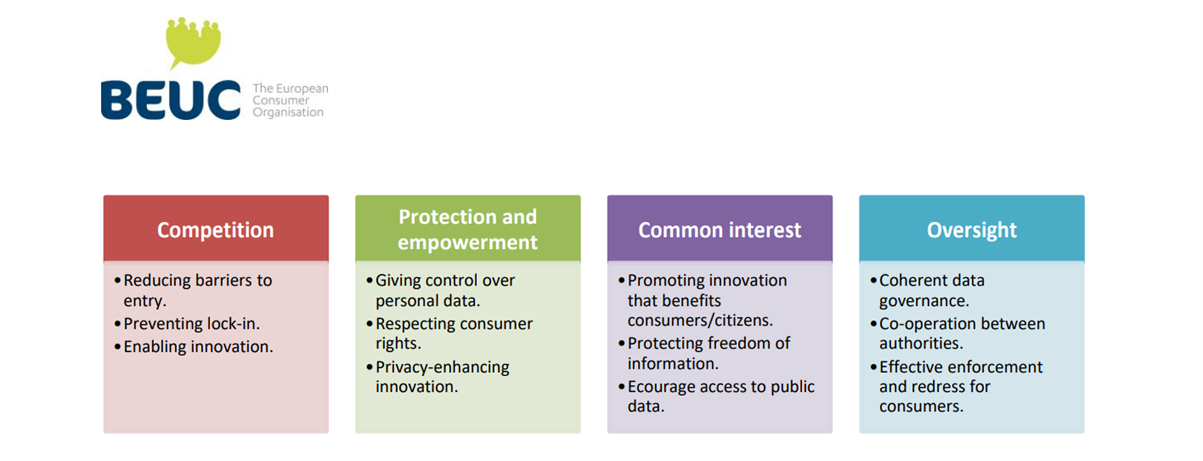The European Consumer Organisation (BEUC) recently published a position paper on access to consumers’ data in the digital economy.
This topic has created a discussion among industry and trade/sector associations. There are some aspects which are also important to us and for the positioning of GS1 in Europe towards those organisations.
In brief, BEUC recommends that decision-makers and enforcement authorities take into account the following principles for a consumer-friendly data-driven and competitive ecosystem
- Intervention in the form of data access should be used only to tackle market failures leading to higher consumer prices, less choice and less innovation
- Data access must foster the development of consumer-centric innovation
- Consumers must be allowed to object to the sharing of their personal data. This right currently does not exist under the General Data Protection Regulation (GDPR), and therefore should be further considered by the legislator as an additional requirement, when adopting data access regimes or as a condition for the data sharing if mandated by a competition authority as an interim measure or competition remedy
- Operators handling personal data must be obliged to establish a high level of data security
- Consumers must be offered technical solutions to help them to control and manage flows of their personal information
- Consumers must have access to redress when these principles are not respected
BEUC considers that a consumer-centric European data policy should be built around four pillars to ensure that data is used for the benefit of consumers:

Attached Documents
BEUC position paper on the consumers' data in the digital economy (PDF - 444.5 Kb)
